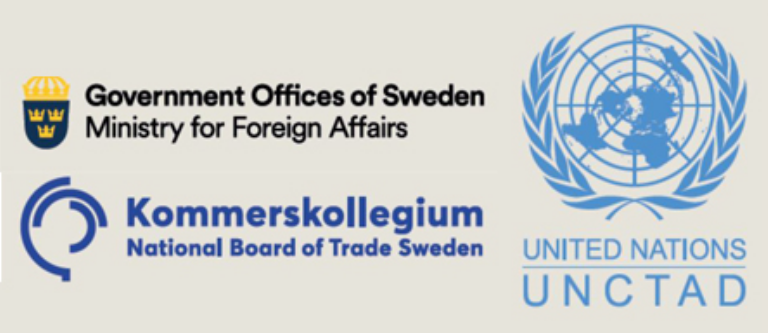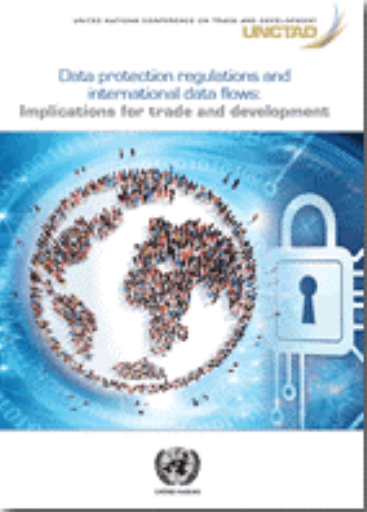|
International seminar on Digital Economy, Trade and Development in Sweden 21 June 2017
Summary by the Ministry for Foreign Affairs of Sweden
The Ministry for Foreign Affairs of Sweden, together with UNCTAD and the National Board of Trade Sweden, organized an international seminar on 21 June 2017 in Stockholm to highlight and discuss e-commerce, the rapid development of the digital economy opportunities for trade, and the possibilities and challenges facing developing countries. Issues covered included the developmental effects of the digital economy, bridging the e-commerce divide, and also the need for and shape of rules regarding cross-border data flows.
During a high level segment Minister of EU affairs and Trade of Sweden, Ann Linde and UNCTAD Secretary-General Mukhisa Kituyi discussed how the "digital divide" between industrialized and developing countries could be addressed. Linde emphasized the importance of functioning internal markets as well as openness to global trade and investment and addressing gender issues but also the need for development cooperation. She announced a new Swedish contribution to UNCTAD on e-commerce in least developed countries. Kituyi highlighted the opportunities for developing countries including in terms of achieving several Sustainable Development Goals. He agreed with the Minister that the role of development cooperation was essential, and mentioned the UNCTAD-led eTrade for all initiative as an important vehicle in this context. The WTO ambassador of Argentina Marcelo Cima raised the issue of multilateral rules on e-commerce.
The whole day seminar comprised several panels featuring a wide range of topics, such as the role of data flow for e-commerce and the importance of the legal framework for boosting trust online, better business opportunities for small businesses, and more inclusive trade.
A large part of the discussions highlighted how e-commerce creates opportunities as well as challenges for developing countries as well as the clear link between e- commerce and sustainable development. A recurring question was how to address and overcome existing "digital divides”, both in relation to e-commerce but also manufacturing. Among possible answers apart from improving ICT infrastructure, were improving the integration of developing countries and their companies in global value chains affected by the digital economy as well as enhancing their capacity to use e-commerce for growth and sustainable development. The need for active participation and support from donor countries, civil society, and private business was also discussed. In addition, multilateral rules on e-commerce and other measures for increased trust on line were other issues discussed.
The seminar offered a broad range of panelists and speakers from, among others, developed and developing countries, the World Bank, ITC, WTO, EU Commission, and Swedish institutions and companies as well as companies and organisations from developing countries. The audience constituted of a wide range of participants from governments, international organizations, civil society, and private sector who enriched the Seminar with questions and comments.
<https://www.kommers.se/digitaleconomy>
|
 About Us - Galexia News
About Us - Galexia News
![[ Galexia Dots ]](/images/hr.gif)

![[2018 Global Cloud Computing Readiness Scorecard]](/public/ssi/pubs/pub_1.png)



 print this page
print this page sitemap
sitemap manage email subscriptions
manage email subscriptions